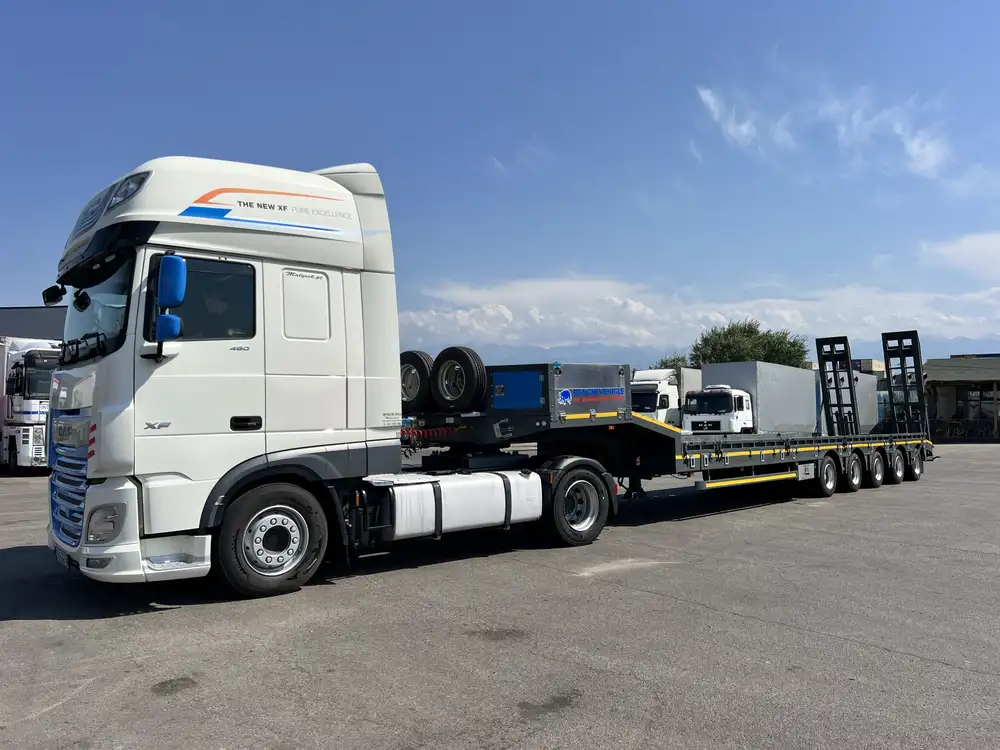When planning an adventure that involves towing a travel trailer, such as a 16-foot model, it’s imperative to understand the compatibility of your vehicle. Specifically, many outdoor enthusiasts find themselves questioning: can an SUV safely tow a 16-foot travel trailer? In this comprehensive guide, we will dissect the variables that come into play when determining the towing capability of SUVs and provide valuable insights into making the right choice for your next journey.
Understanding Towing Capacity
What is Towing Capacity?
Towing capacity refers to the maximum weight your vehicle can safely pull. For SUVs, this is specified by the manufacturer and varies significantly between models. Here’s a brief overview to help you understand:
| Vehicle Type | Average Towing Capacity |
|---|---|
| Compact SUVs | 1,500 – 3,500 lbs |
| Midsize SUVs | 3,500 – 5,000 lbs |
| Full-Size SUVs | 5,000 – 10,000 lbs |
Your SUV’s ability to tow a 16-foot travel trailer hinges on its designated towing capacity. Generally speaking, a 16-foot travel trailer may weigh between 3,000 and 5,000 pounds, depending on its design and features. Thus, ensuring your SUV meets or exceeds the necessary towing capacity is paramount.

Factors Affecting Towing Capacity
- Engine Size: Larger engines typically translate to a higher towing capacity, allowing for greater hauling capacity.
- Transmission Type: Vehicles equipped with a manual transmission often have different towing capacities compared to their automatic counterparts.
- Rear Axle Ratio: A higher rear axle ratio can enhance towing capabilities, improving torque.
- Braking System: Advanced braking systems enhance safety and help control weight during towing.
Assessing Your SUV’s Specifications
Identifying Your SUV’s Towing Limit
Before you set out on your journey, locate your SUV’s owner’s manual or the manufacturer’s website. They detail the specific towing capacity associated with your model. Some key points to consider:
- Max Towing Weight: This figure reflects the total weight your SUV can safely tow, including the trailer’s weight and any cargo within it.
- Gross Vehicle Weight Rating (GVWR): This is the total weight your SUV is rated to carry, including all passengers and cargo.
- Tongue Weight: Ideally, 10-15% of the trailer’s total weight should be on the hitch. This supports proper balance and safer towing.

Examples of Popular SUVs and Their Towing Capacities
| SUV Model | Max Towing Capacity | Notes |
|---|---|---|
| Ford Explorer | Up to 5,600 lbs | Excellent choice for larger trailers |
| Chevrolet Tahoe | Up to 8,400 lbs | Best-in-class towing capabilities |
| Honda Pilot | Up to 5,000 lbs | Features good safety ratings |
| Jeep Grand Cherokee | Up to 7,200 lbs | Enhanced off-road capabilities |
| Toyota 4Runner | Up to 5,000 lbs | Solid durability and capabilities |
Safety Considerations for Towing
The Importance of Weight Distribution
Distributing the weight evenly along the trailer is vital in preventing swaying and improving control during the towing process. A weight distribution hitch can greatly enhance balance by redistributing the trailer’s load to all axles of the tow vehicle. Remember:
- Load Heavy Items Low: Place heavier items closer to the axles of the trailer.
- Maintain a Balanced Load: Ensure equal weight distribution on both sides of the trailer.
- Use Wheel Chocks: These are useful to prevent the trailer from rolling while parked.

Trailer Brake System
For safety and compliance reasons, it is critical to equip your 16-foot travel trailer with its own brake system, especially if its weight exceeds 3,000 pounds. Here’s how different brakes work:
| Brake Type | Description |
|---|---|
| Electric Brakes | Activated by the tow vehicle’s brake pedal; reliable and efficient. |
| Surge Brakes | Automatically engage during deceleration; useful for lighter trailers. |
Check local regulations regarding trailer brake requirements to ensure full compliance and safety during your travels.
Assessing the Terrain
Match Your SUV to the Journey
The terrain over which you plan to travel plays a massive role in determining if a standard SUV can successfully tow a 16-foot travel trailer. Consider the following scenarios:
- Flat, Paved Roads: Most SUVs can manage well.
- Hilly or Mountainous Areas: Opt for an SUV with higher torque and power.
- Off-Road Conditions: Consider an SUV specifically designed for off-road capabilities with a beefier frame and advanced suspension.

Common Questions About Towing with SUVs
Can I Use a Compact SUV for Towing?
While compact SUVs typically have lower towing capacities, some can manage small trailers. However, using them for a 16-foot travel trailer is generally unwise unless the specific model indicates otherwise. Evaluate the weight of the trailer, including cargo, against the compact SUV’s towing capacity.
What is the Best Tow Vehicle?
The “best” tow vehicle varies by context. While many might recommend full-size SUVs for their robust power, factors such as gas mileage, comfort, and personal preference play a significant role. Many adventurers find:
- Chevrolet Silverado: Ideal for rugged outdoor experiences.
- Ford Expedition: Offers excellent towing and passenger capacity.
- Ram 1500: Known for comfort and durability.

What are the Legal Requirements for Towing?
Each state and locality has different laws related to towing. Be sure to:
- Check licensing requirements for your trailer.
- Ensure compliance with weight limits.
- Have the proper hitch equipment and lights installed.
The Benefits of Owning a Travel Trailer
Owning a travel trailer offers the freedom to explore without the need for hotel bookings. Here’s a look at some perks:
| Benefits of Travel Trailers | Description |
|---|---|
| Cost Efficiency | Saves money on accommodations and food. |
| Flexibility and Freedom | Travel at your own pace, go where you want. |
| Comfort | Home-like amenities make for enjoyable outings. |
Preparing to Tow: A Checklist
- Ensure Your SUV Meets Towing Specs: Confirm the maximum towing capacity.
- Inspect the Trailer: Check lights, brakes, and tire condition.
- Balance Your Load: Distribute weight evenly before hitting the road.
- Install Proper Equipment: Use a hitch rated for your trailer weight.
- Test Drive: If possible, take a short drive in an empty trailer to test maneuverability.

Conclusion: Can an SUV Carry a 16 Foot Travel Trailer?
In conclusion, whether an SUV can carry a 16-foot travel trailer depends heavily on specific factors such as the make and model of the SUV, its towing capacity, and any additional equipment utilized. With careful attention to specifications, safety, and preparation, many SUVs can indeed handle towing a travel trailer effectively.
For those contemplating this adventure, understanding your vehicle’s capabilities can turn every journey into a memorable exploration, combining the thrill of the open road with the coziness of home. Always prioritize safety and ensure all necessary preparations are made to enjoy your travel trailer to the fullest. Happy travels!



